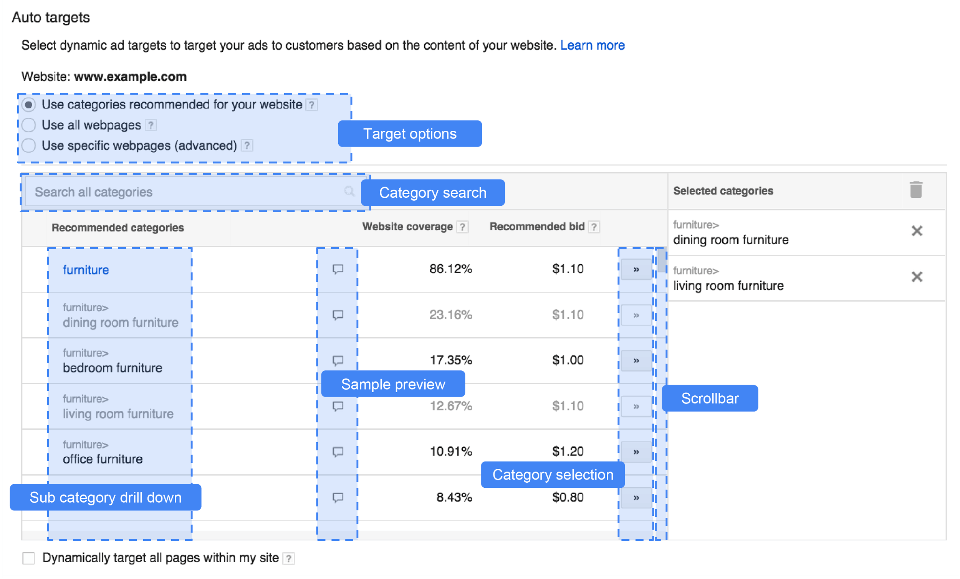In yesterday’s post I presented 6 possible solutions on how to get rid of referral spam from Google Analytics (GA) as discussed at the Google Partners Masterclass 2015 event. Although there is no foolproof solution for this problem implementing those will help you report on cleaner and more accurate GA data. Today we’ll talk about Google’s latest enhancement to Dynamic Search Ads (DSA) that can help you reach your customers better with more targeted ads focus on the campaigns that are most important by automating the ones you don’t have enough time for and overall optimize and improve on your paid campaign workflows especially in the set-up phase.
New and Improved DSA
Dynamic Search Ads (DSA) was recently overhauled and now has tools and features for those with huge inventories of landing pages (i.e. e-commerce advertisers). Aside from crawling your website DSA now sorts your website content (i.e. products and services) into recommended categories and saves you time by targeting your ads based on those categories. With DSA text ads are automatically generated by Google for inclusion in an auction based on website content. Google also creates the headline and ad copy and chooses the relevant landing page on your website.
A Closer Look at DSA
Although DSAs are a good way to propel a low performing e-commerce site forward David cautioned everyone not to use this as a primary way of managing campaigns. For control freak-advertisers the downside of this is the lack of control on what ads are being displayed and where you are driving people to. Another issue would arise if your website contains not optimized title tags or H1 heading tags which would make the search query matching of the ads with your online product or service quite difficult.
Some Helpful Tips For You
Tip #1
Best practice would always be to manage your keywords ads and bids yourself. Be wary about anything Google does on autopilot especially when it comes to keyword selection and bids (which directly impact spend and therefore Google’s profits).
Tip #2
A good tip from David is to manage most campaigns manually but use DSA for covering all your bases on the large number of low search volume long-tail keywords or in cases like where you have a huge number of location based keywords. So kind of use it as a “Catch All” for anything you’ve missed. Also suitable where you have thousands of landing pages such as e-commerce advertisers with thousands of products in stock.
Note in the case of above normal bids take precedence over DSA bids so your manual campaigns will show first.
Tip #3
You can use DSA for harvesting valuable keyword data for cases where the Google Keyword Planner tool doesn’t provide information for extremely specific terms.
Tip #4
Recommend ensuring you have a good list of negative keywords as DSA will pick up very broad traffic otherwise.
Tip #5
Also I recommend regularly running search query reports to pick up any high cost low performing keywords.
Is DSA right for you?
DSA is a powerful way to reach your customers spearhead remarketing and display campaigns and guide your landing page creation but is it right for your business?
It really depends but we can help!
One of the benefits of partnering with FIRST is that we can help you sort the wheat from the chaff and make sensible decisions about how to use a tool like DSA for your business.
Give us a call at +64 9 920 1740 or fill out the contact form below so we can get in touch with you and have a chat around your specific needs.
Up Next…the Last of the Series
For the seventh and last post of the Google Partners Masterclass 2015 series our article tomorrow will cover Google’s (not provided) keywords data in Google Analytics. David presented the process developed by Chris Liversidge on how to match keyphrase data from Webmaster Tools to their landing page URLs and how to workaround Google’s (not provided) keywords for better SEO performance reporting.


